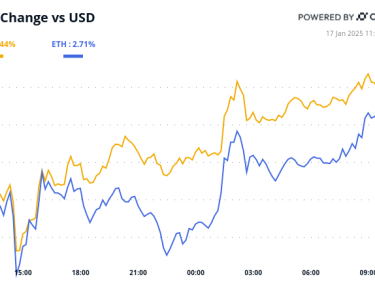UN Agency Recommends Criminalization of Unlicensed VASPs in Southeast Asia to Counter Cyber Fraud
The UNODC has released a set of recommendations for combating cyber-enabled fraud in Southeast Asia.
It also warned scammers are diversifying into new tactics and making use of new technologies such as AI.
The United Nations Office on Drugs and Crime called on Southeast Asian nations to make operating a money service business or virtual asset service provider (VASP) without a license a criminal offense.
Some VASPs – including those with links to known criminals – are facilitating transactions for fraud outfits and high-risk gambling sites, the agency said in a report published Monday.
One unidentified entity engaged in “at least hundreds of millions of dollars” in transactions with criminal operations, according to the report. Among them were groups connected to or directly involved in large-scale drug trafficking, human trafficking, cybercrime and child sexual abuse material, as well as entities sanctioned by the U.S. Office of Foreign Assets Control (OFAC) and wallets linked to North Korea’s Lazarus Group.
“It is more critical than ever for governments to recognize the severity, scale and reach of this truly global threat, and to prioritize solutions that address the rapidly evolving criminal ecosystem in the region,” Masood Karimipour, UNODC’s regional representative, said in a statement.
The agency also recommended greater monitoring of organized crime involvement in casinos, junkets, cyber fraud operations and other businesses linked to scam operations, as well as better training for authorities in online gambling operations and money laundering methods enabled by sophisticated technologies, particularly cryptocurrencies.
While not all the scams run out of the region involve crypto, it is a popular payment choice with scammers “due to the ease with which rapid cross border transactions can take place, widespread misinformation and low levels of understanding about how cryptocurrency functions, and, in some cases, the breakdown of cross-border law enforcement cooperation, investigation, case intake, and asset recovery,” the report said.
Run out of unassuming office blocks or casino complexes, online fraud has mushroomed into a huge industry in the region, though scammers and victims are usually from elsewhere. A previous UN report estimated that around 220,000 people work in scam centers in Cambodia and Myanmar alone, some against their will after having been lured to the countries under the pretense of a legitimate job.
Among the scams is pig butchering, a type of romance scam where the operators befriend unsuspecting victims online before coaxing them to invest in fraudulent platforms.
The report found that scammers are diversifying, adding approaches including impersonation scams, job or task scams, asset-recovery scams and targeted approval phishing scams. It also found an increase in the use of new technology such as AI and deep fakes to help run their operations.




